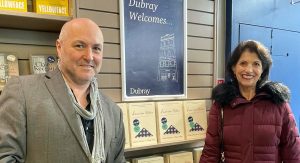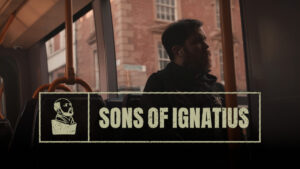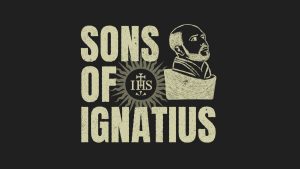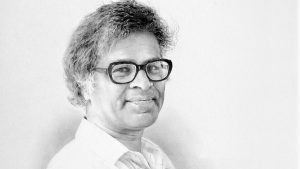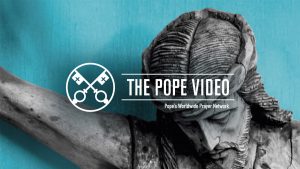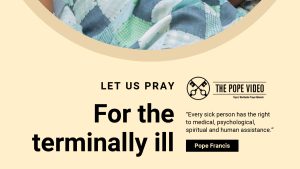Addressing moments of transcendence
 At Manresa’s Arts and Spirituality seminar in August, writer and director Peter Sheridan spoke about how his understanding of both art and the spirit were greatly influenced by the tragic death of his brother, Frankie.
At Manresa’s Arts and Spirituality seminar in August, writer and director Peter Sheridan spoke about how his understanding of both art and the spirit were greatly influenced by the tragic death of his brother, Frankie.
The death of my brother Frankie in 1967 was always going to be the defining chapter in the book. He died on the 17th of April at the age of ten. This was the event in the family that you couldn’t escape from. All roads led to Frankie’s death. I remember my feeling that God had abandoned us. As a kid of 15, I thought if I prayed really, really hard to stop this event from happening, there would be a miracle and it would all be grand. But that didn’t happen, and Frankie’s death left a huge scar in my life, in the life of my family. The pain was so great, so intense, that our parents couldn’t talk about it. Nobody could mention it anymore. It was the elephant in the room. There were photographs over the television but it was the subject that nobody could talk about yet everyone was trying to address. And that was the spiritual wound that our whole family was trying to cope with, each in our own way.
After Frankie’s death, my father went into a huge decline. Having been the kind of guy who never missed work, now he never went to work. The blinds were always down in his bedroom and everybody walked around on tippy toe. And then he started imagining he had a brain tumour. He started getting headaches. It was my mother, at this time, who was the rock, the energy that held the family together through a terrible time.
Then, after about nine months, my father just got out of bed and said, ‘I’m starting a drama group, I want to be an actor’. He worked for CIE, but he always wanted to be Gary Cooper. When we were kids, he often used to to tell us the stories of Gary Cooper films. I remember him telling me the story of High Noon as if it was yesterday. He would take an hour to tell you; he would do all the actions, he would build the whole thing up – fantastic, he was a natural story teller! Starting the drama group was his response to Frankie’s death. He had to do something to grasp life again, and that drama group saved him.
In the next two years myself and my brother Jim went from having a bit of interest in the world of theatre to being totally consumed by it. Amazing! In 1969 we did Waiting for Godot. It was pretty avant garde to be doing that stuff around the halls of Ireland – people shouting at us, shouting at the play, crying out “This is the anti-Christ, this is not a play, this is the Devil”.
In any case, I played Vladimir and my father played Pozzo. At one point in the play Vladimir keeps pestering Pozzo. “When did you go blind?,” he asks him. ‘One day, one day,’ Pozzo replies. But Vladimir keeps at him and finally Pozzo loses his temper:
“When! When! One day, is that not enough for you, one day he went dumb, one day I went blind, one day we’ll go deaf, one day we were born, one day we shall die, the same day, the same second, is that not enough for you? They give birth astride of a grave, the light gleams an instant, then it’s night once more.”
If that ain’t a prayer, I don’t know what is! It was extraordinary being on stage with my father and doing that dialogue with him, and thinking of Frankie’s death… It was as if Beckett gave my father a voice, in a weird way. Through Beckett’s language, somehow, there was a little bit of closure on the death of Frankie. There was a feeling of transcendence. And this is what I think the issue of Arts and Spirituality is all about: both are about trying to address the moments of transcendence in our life.
I had a drinking problem all this time, and it too can be dated back to Frankie’s death. On the day of Frankie’s funeral, I drank whiskey for the first time, and I remember the feeling it gave me –wow! I fell in love with whiskey. It became a huge problem for me, right through my twenties and thirties – as much a psychological as a physical problem. Brendan Kennelly once said to me, “Drink makes your heart grow old”. That’s exactly what it does – it makes an old person out of a young person. You lose your spirit. Whiskey is uisce beatha, the water of life; but that’s exactly what it steals from you, the water of your life, your spirit. Luckily, a man I knew saw the trouble I was in, grabbed me and said, “You need help”. And he brought me to Alcoholics Anonymous and I haven’t looked back. I got the message really quickly.
But when I stopped drinking I knew Frankie was still a huge issue for me, an unresolved issue in my soul. In September 1990, I went to Austin, Texas, to direct a play called Translations by Brian Friel. It’s a very spiritual play, about language and the relationship of language to the soul of a people, about the problem for us Irish people with this new language, English. This was fascinating, but at that time I was grappling with my own problem. Thirteen months after getting sober and Frankie was all I could think about. When the rehearsals were over, I’d go into the green room and start crying. For three days I cried – for hours each day, non stop. I’d just cry, “Frankie, Frankie, Frankie, Frankie…”. And all the terrible thoughts which had been there since Frankie’s death came out. Was it my fault? Would it have been better if he had lived and I had died instead? Maybe I had done something wrong. Or maybe we hadn’t been holy enough as a family and we were being punished – and somehow I was part of the punishment.
I was carrying all this shit and drivel around with me for so long. Now I was letting go. Now I was having a moment of spiritual awakening. I begged God to lift this weight from me. I couldn’t cope with it anymore. I implored the higher power to help me, and the higher power did what I asked. Suddenly, after these three days of crying and weeping and trying to write a bit, I felt something shift. Something happened. It’s like Beckett says: ‘Something happens in the world, a breath, something takes place’. So that was my moment of spiritual awakening.
Over the following years my journey was about getting properly in touch with this God, this higher power, and learning that the God of my childhood, the punishing monster who kills your ten-year-old brother – isn’t God at all! God is benevolent, kind. God looks out for me, cares about me, is concerned. I have a personal relationship with this God, I can actually ask him things, I can share my vulnerabilities with him. He isn’t waiting to clobber me over the head, as the God of my childhood had been. So now words like ‘grace’ started to mean something to me. I started plugging into completely different parts of my brain or my psyche than I had before. And I started reading authors in a different way. I saw things I hadn’t seen before. I could sometimes intuit things about them and their work. “I know what they’re saying,” I’d think; “I recognise the pain.”


